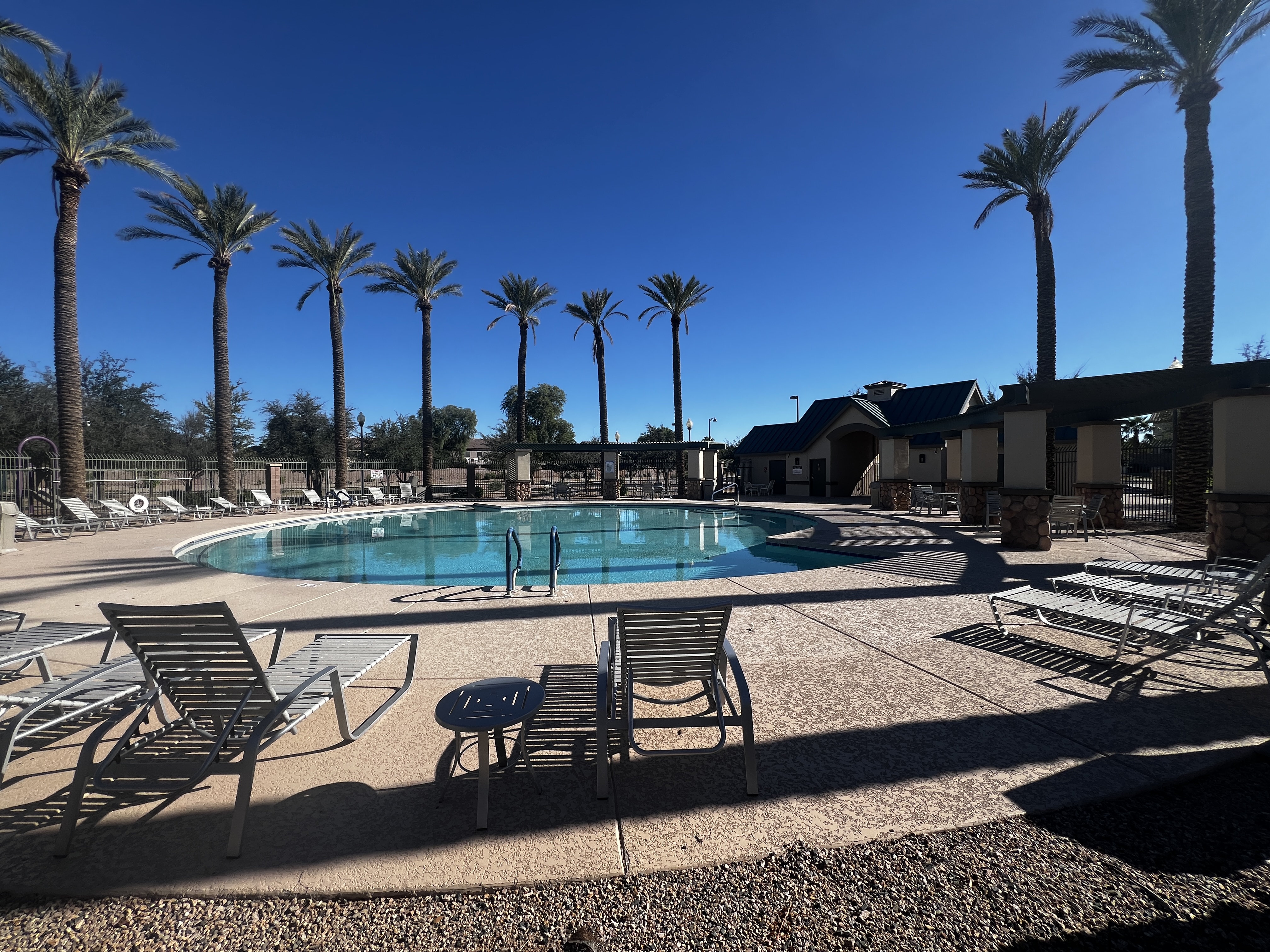Blog > What Credit Score Do I Need to Buy a House in Maricopa AZ?
What Credit Score Do I Need to Buy a House in Maricopa AZ? (Updated: October 2024)
- Conventional loans typically require 620+ FICO, while FHA loans may accept 580+ (or 500-579 with 10% down)
- Higher scores (680+) unlock better interest rates and lower mortgage insurance costs
- Ethical credit building takes time - avoid services promising instant results or charging upfront fees
Quick answer: In Maricopa, AZ (Pinal County), most lenders require a 620+ FICO score for conventional mortgages. FHA loans may accept scores as low as 580 (with 3.5% down) or even 500–579 (with 10% down), though individual lenders often apply stricter overlays. VA and USDA programs have no official minimum, but lenders typically use internal benchmarks around 620–640. Always confirm current requirements with a licensed lender.
Location note: This page covers Maricopa, Arizona (city in Pinal County) — not Maricopa County.
If Maricopa's affordability and ~35-minute Phoenix commute (traffic-dependent) appeal to you, understanding how your credit score influences loan options can make homeownership smoother and less stressful. This guide covers typical score requirements, ethical credit-building strategies, and how a Realtor can connect you with trusted resources when you ask.
Fast next steps for Maricopa home buyers
A Realtor can introduce third-party lenders and credit-education providers if you request it—no obligation.
Estimate Your Payment Get Free Evaluation Talk to a Local Agent

How do credit scores shape loan options in Maricopa?
Local insight: Many Maricopa neighborhoods are HOA-managed (like Tortosa and Lakes at Rancho El Dorado), which affects monthly budgeting along with utilities like ED3 (Electric District 3), Global Water, and Southwest Gas.
Different loan programs have different credit requirements. Here's what you need to know about the four main types available to Maricopa buyers:
Conventional (Fannie Mae/Freddie Mac)
Typical lender threshold: ~620+. Higher scores unlock better rates and lower PMI. If you're at 620–679, shop multiple lenders and consider reducing credit utilization before closing.
Bottom line: Conventional loans typically start around 620, with better pricing at higher score tiers.
FHA (Federal Housing Administration)
Program rules allow 580+ for 3.5% down and 500–579 with 10% down. Many lenders apply overlays (often 600–620). FHA requires mortgage insurance (MIP), affecting monthly cost.
Bottom line: FHA can work with lower scores, but expect lender overlays and ongoing MIP.
VA (U.S. Department of Veterans Affairs)
No official minimum score, but lenders commonly look for ~620+. Benefits include no down payment and no monthly mortgage insurance for eligible borrowers. Funding fees may apply.
Bottom line: VA guidelines are flexible; most lenders prefer scores near 620 or higher.
USDA (U.S. Department of Agriculture)
Designed for eligible rural areas with income limits. No official minimum score, but ~640 FICO is often used for streamlined processing. Manual underwriting varies by lender.
Bottom line: USDA can be zero-down in eligible zones; many lenders prefer 640+ for smoother approvals.
Confirm today's exact credit, income, debt-to-income, and property eligibility requirements directly with a licensed lender. For lender introductions, see the City of Maricopa Mortgage Lender page.
Section recap: Different loan types accommodate different score ranges—your full financial profile determines the best fit.
Why does your credit score matter for buying power?
Local insight: Buyers relocating from Phoenix tell us Maricopa's value (more home for the payment) offsets the roughly 35-minute commute—especially in communities like Cobblestone Farms, Rancho Mirage, and Villages at Rancho El Dorado.
Your credit score directly impacts your interest rate and insurance costs (PMI or MIP). Improving from the low-600s to the high-600s or 700s can significantly reduce monthly payments and total interest paid over the life of your loan.
| Approximate FICO Tier | Common Outcome |
|---|---|
| ~620–639 | Fewer lender options; higher rates and insurance costs likely. |
| ~640–679 | More options available; moderate pricing; focus on utilization and on-time payments. |
| ~680–719 | Competitive pricing; better PMI factors. |
| ~720–759 | Strong pricing; PMI often meaningfully lower. |
| 760+ | Top-tier pricing with most lenders. |
Use the Maricopa Mortgage Calculator to estimate monthly payments at different score levels and see the real dollar impact.
Section recap: Higher scores generally reduce borrowing costs and expand your lender choices.
How can I improve my credit score ethically?
Local insight: Newer builds in areas like Maricopa new construction communities may have HOA and utility setup timelines—plan your move-in date with ED3, Global Water, and Southwest Gas lead times in mind.
Building credit takes time, but following ethical, proven strategies protects you from scams and sets you up for long-term financial health:
- Pull your credit reports for free through resources at Consumer Financial Protection Bureau and AnnualCreditReport.com.
- Pay all bills on time and keep credit utilization below 30% (lower is better—many aim for under 10%).
- Dispute errors with documentation; avoid services promising broad "credit sweeps" without legitimate basis.
- Never pay upfront fees for "guaranteed" credit repair—major red flag. Consider HUD-approved counseling or direct lender guidance instead.
- Rate-shop smartly: Mortgage inquiries within a short window (typically 14–45 days) count as one inquiry for scoring purposes.
- Avoid closing old accounts unless necessary, as credit age affects your score.
- Become an authorized user on a family member's well-managed account (if possible) to potentially boost your history.
What a Realtor can do: We're happy to share educational resources. If you ask, your Realtor can introduce independent lenders or credit-education providers—no obligation and no fees from us. We do not provide credit repair services and cannot guarantee outcomes.
Section recap: Stick to verifiable, legal credit-building steps; avoid services promising instant results or requiring upfront fees.
What should I know about Maricopa neighborhoods?
Local insight: HOA-heavy areas like Tortosa, Lakes at Rancho El Dorado, and Villages at Rancho El Dorado often include resort-style amenities that affect both value and monthly dues.
Families moving from Phoenix often cite more space for the dollar and strong community amenities. Here are popular neighborhood profiles:
- Cobblestone Farms: Parks, ponds, and family-friendly layout.
- Villages at Rancho El Dorado: Pools, recreation centers, and active community events.
- Province: Gated 55+ resort-style community offering lock-and-leave convenience for downsizers.
- Tortosa: Premium amenities, multiple pools, and golf course access.
- Acacia Crossings & Maricopa Meadows: Convenient access to major routes for Phoenix commuters.

Section recap: Match HOA rules, amenities, and location to your budget and lifestyle goals before making an offer.
What's the pre-approval roadmap for Maricopa buyers?
Local insight: Commuters appreciate being one or two turns from major routes—ask about drive-time patterns from neighborhoods like Sorrento or Alterra to Phoenix employment hubs.
Follow this four-step roadmap to move from browsing to pre-approved buyer status:
- Budget & credit snapshot: Use the mortgage calculator and pull your credit reports to understand where you stand.
- Lender conversations: Ask about today's overlays for Conventional/FHA/VA/USDA programs. Verify down payment, debt-to-income limits, and reserve requirements.
- Neighborhood scouting: Tour communities like Cobblestone Farms, Maricopa Meadows, and Desert Passage to assess HOA fees, amenities, and commute access.
- Offer strategy: Work with your buyer's agent to align price, concessions, and inspection timelines with lender requirements.
When you request it, a Realtor can introduce third-party lenders and credit-education providers to help you compare options—again, no obligation and no referral fees unless disclosed in advance.
Section recap: Start with budget and lender verification, then align neighborhoods and offer terms with your goals.
Ready to move from planning to pre-approval?
Check payment estimates, compare neighborhoods, and connect with trusted local professionals.
FAQs: Credit Score & Maricopa Home Buying
Local insight: Utility setups with ED3, Global Water, and Southwest Gas can have lead times—ask about connection timelines during your escrow period.
What's the minimum credit score to buy a house in Maricopa?
Many lenders look for ~620 for Conventional loans. FHA may approve lower scores (as low as 580 or even 500 with larger down payments) depending on lender overlays. VA and USDA have no official minimums, but lenders typically use internal benchmarks around 620–640. Always verify current requirements with your lender.
Can a Realtor help me repair my credit?
Realtors do not provide credit repair services. However, when you request it, a Realtor can introduce third-party lenders or credit-education providers—no obligation. We cannot guarantee outcomes or make promises about credit score improvements.
Will shopping for a mortgage hurt my credit score?
Rate shopping within a short window (typically 14–45 days, depending on the scoring model) is usually treated as a single inquiry for credit scoring purposes. Ask your lender how their credit pull process works.
Is Maricopa a good fit for Phoenix commuters?
Many buyers find the ~35-minute drive (traffic-dependent) worth the value trade-off. Tour communities like Cobblestone Farms, Villages at Rancho El Dorado, and Acacia Crossings to compare access, amenities, and lifestyle fit.
Are 55+ buyers comfortable in Province?
Province is a gated 55+ community with resort-style amenities and active social clubs that often reassure downsizers seeking a simpler, maintenance-free lifestyle.
What loan programs work best for first-time buyers in Maricopa?
Many first-time buyers use FHA (low down payment, flexible credit) or Conventional with low down payment options (3–5% down). Some may qualify for USDA (zero down in eligible areas) or VA (if eligible). Consult with a lender to determine the best fit for your situation.
How long does it take to improve my credit score?
Timeframes vary based on starting score and issues being addressed. Paying down high balances can show improvement in 30–60 days. Correcting errors might take 30–90 days. Building a positive payment history takes several months to a year. Work with a lender or HUD-approved counselor for personalized guidance.
Section recap: Score targets and loan rules vary by lender and program—verify specifics before you shop.
What are your next steps?
You now understand typical credit score requirements for buying a home in Maricopa. Here's how to move forward:
- Check your credit: Pull reports from all three bureaus and review for accuracy.
- Estimate affordability: Use the Maricopa Mortgage Calculator to see monthly payments at your current score level.
- Talk to a lender: Get pre-qualified or pre-approved to understand your buying power and loan options.
- Connect with a local agent: Experienced Maricopa Realtors can guide you through neighborhoods, negotiate offers, and introduce trusted service providers when requested.
Bottom line: Credit scores matter, but they're just one piece of the puzzle. With the right preparation and local expertise, you can find your perfect Maricopa home.
Related Resources:
- Maricopa Market Snapshot – Current pricing and inventory trends
- Buyer Agent Services – Representation and guidance throughout your home search
- Assumable Mortgage Homes – Alternative financing options
- Pool Homes in Maricopa – Lifestyle upgrades within your budget
- Join Our Real Estate Network – Stay informed about market opportunities
Resumen en Español
Para comprar una casa en Maricopa, AZ (condado de Pinal), la mayoría de los prestamistas requieren un puntaje FICO de 620+ para hipotecas convencionales. Los préstamos FHA pueden aceptar puntajes tan bajos como 580 (con 3.5% de pago inicial) o 500-579 (con 10% de pago inicial). Los programas VA y USDA no tienen mínimos oficiales, pero los prestamistas típicamente usan referencias internas alrededor de 620-640. Siempre confirme los requisitos actuales directamente con un prestamista autorizado.
Disclaimer: This content is for educational purposes only and does not constitute legal, tax, or financial advice. Loan programs, lender overlays, eligibility requirements, credit score thresholds, and property eligibility areas are subject to change. All buyers must confirm current requirements directly with a licensed lender before making financial decisions. Real estate agents do not provide credit repair services and cannot guarantee credit score improvements or loan approvals. Referrals to third-party service providers (lenders, credit counselors, etc.) are optional and offered only when requested by the client. Unless otherwise disclosed in writing, no referral fees are paid. This information is provided as-is without warranties of any kind. Equal Housing Opportunity. All data is deemed reliable but not guaranteed.
